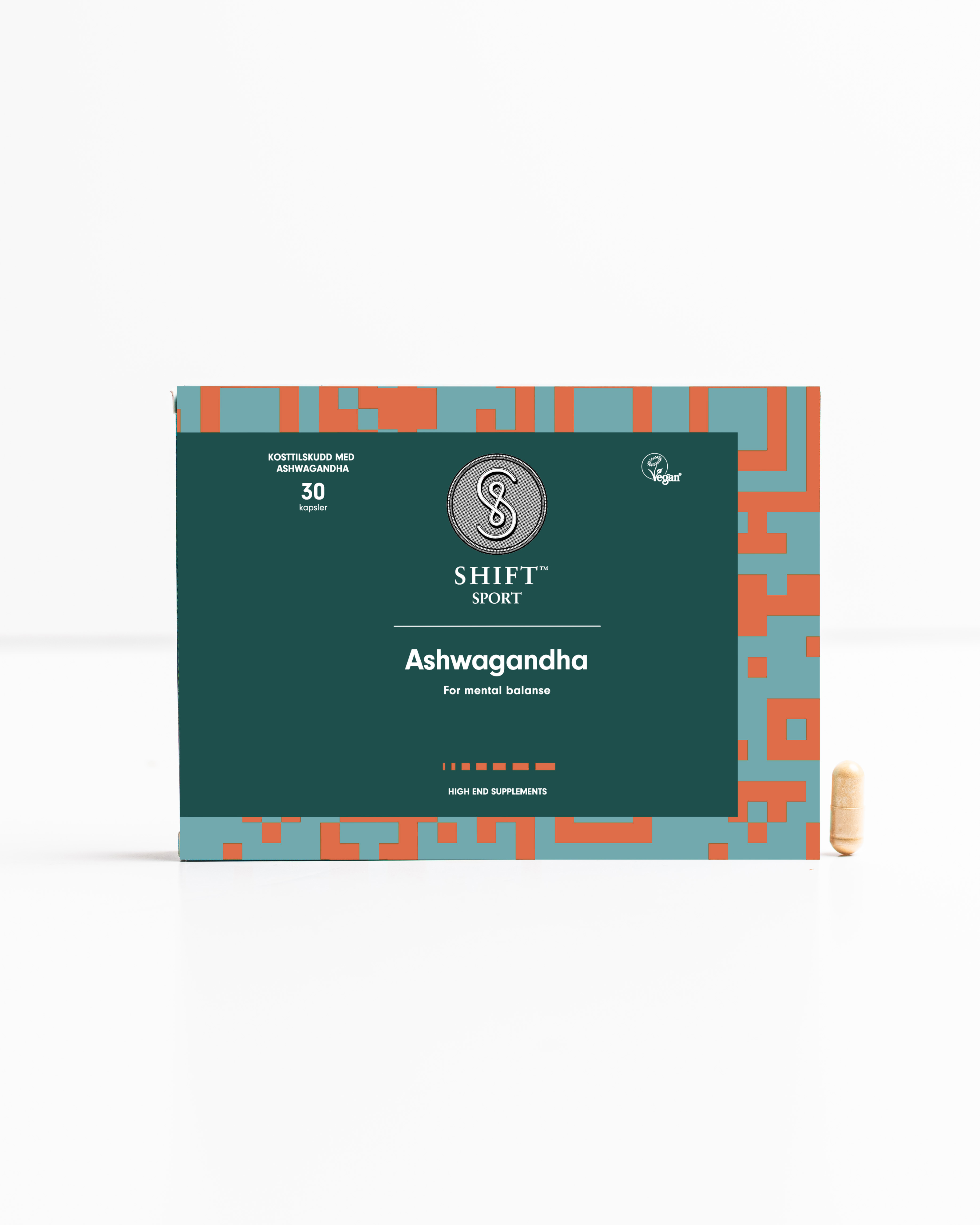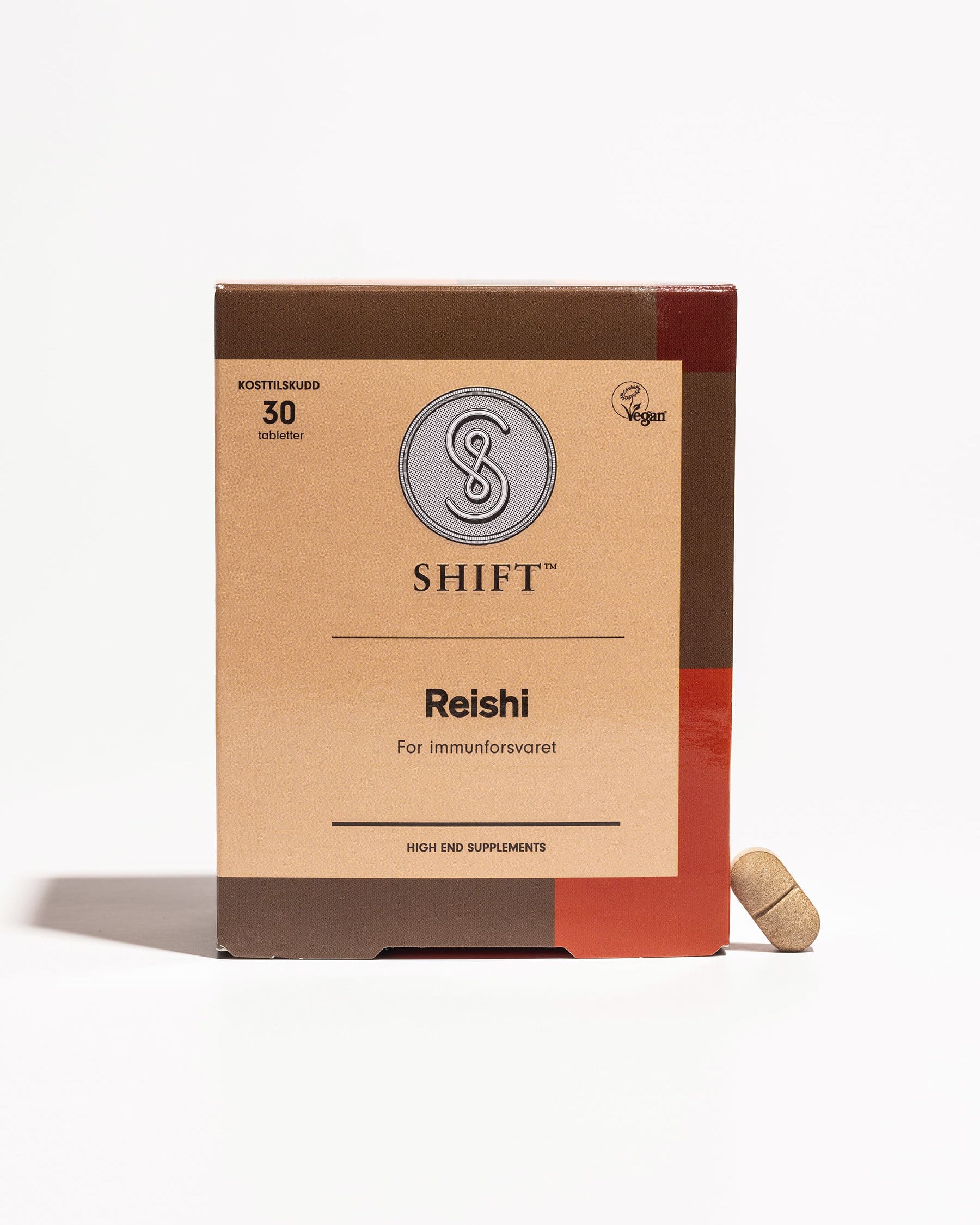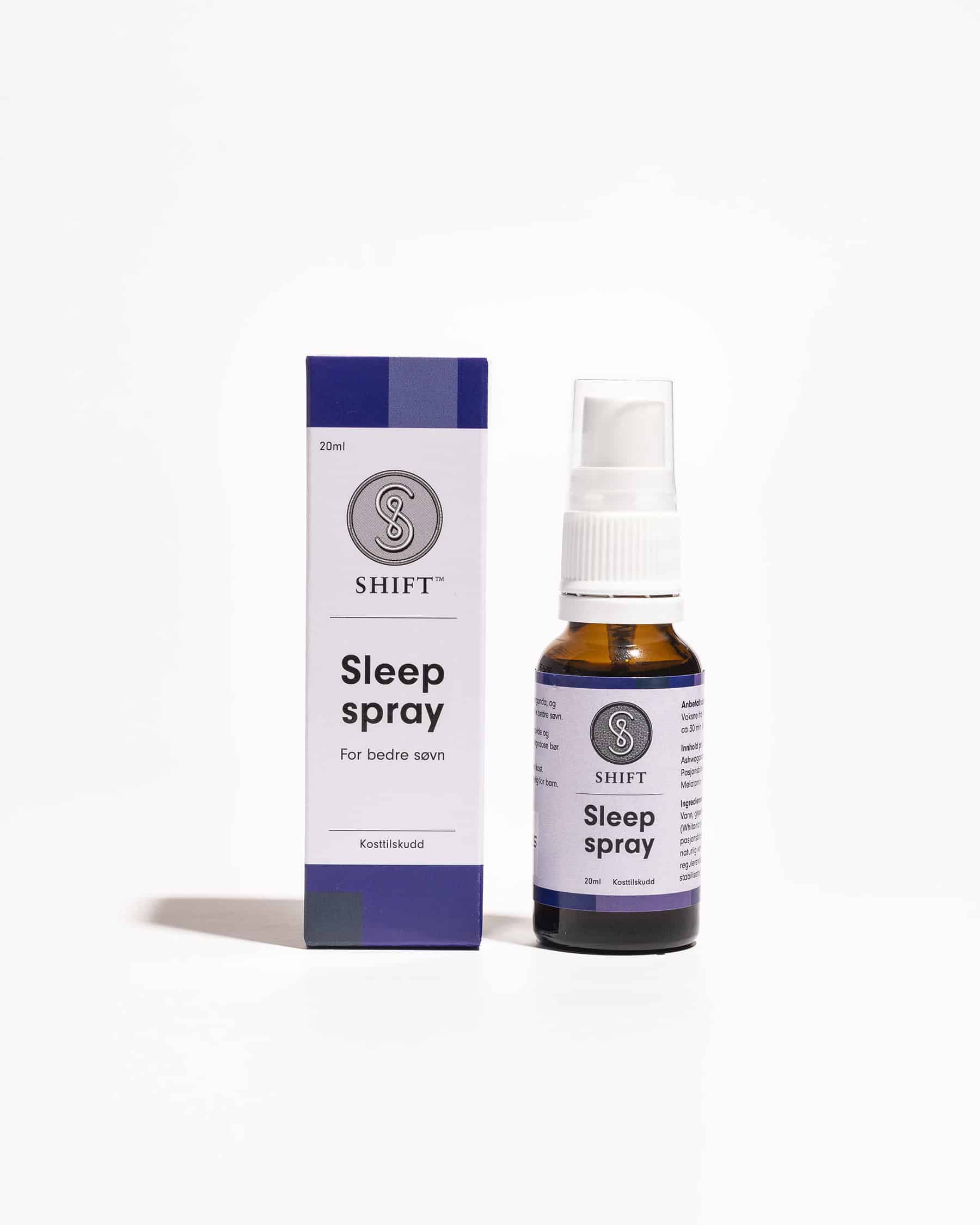Melatonin
Contains 1 mg melatonin per capsule. The composition of the product allows melatonin to be released over time throughout the night.
Melatonin contributes to:
- Reduce sleep time
- Relieve the subjective experience of jet lag
Description
Melatonin is the body's natural sleep hormone that regulates the circadian rhythm. The production of melatonin varies with the time of year and lighting conditions, which affects sleep patterns. Artificial light in the evening, such as from screens, can reduce melatonin production and disrupt sleep. Age also affects melatonin production.
SHIFT™ Melatonin uses melotime™ (slow release) technology for gradual release of melatonin over up to 6 hours. Where the body first gets enough melatonin for sleep, and then utilizes the melatonin throughout the night. A longer melatonin release period can help reduce disrupted sleep patterns and provide good quality sleep throughout the night. SHIFT™ Melatonin is also effective for jet lag and for those who work shift work.
Ingredients
Contents
Content per capsule: % of reference value
Melatonin 1 mg not established
Use
Recommended daily dosage: Adults from 18 years: 1 capsule approximately 30 min before bedtime.
Did you know that
- Approximately 1/3 of adults struggle with sleep on a weekly basis.
- Melatonin is a sleep-enhancing hormone that is produced and secreted from the pineal gland in the brain when the sun sets and darkness arrives.
- Artificial light from laptops, mobile phones and TV screens can reduce the secretion of melatonin and therefore negatively affect the circadian rhythm.
- The melatonin ingredient in SHIFT™ Melatonin is called melotime™. It releases melatonin over a 6-hour period to help you sleep better.
For reduced sleep time
Melatonin is a sleep-inducing hormone that is produced and secreted from the pineal gland in the brain when the sun sets and darkness falls. The hormone ensures a stable circadian rhythm and easier falling asleep. Melatonin secretion is generally highest in the fall and winter, with long and dark nights. In summer and spring, secretion is lower, as bright light reduces melatonin levels.
Exposure to artificial light during the evening, such as laptops, mobile phones and TV screens, can reduce the secretion of melatonin and therefore negatively affect the circadian rhythm, making it more difficult to fall asleep. The production of melatonin is also related to age. Increasing age leads to a lower production of this sleep hormone. Low production and low secretion of melatonin can lead to problems falling asleep, waking up during the night or waking up before you are rested in the morning.





